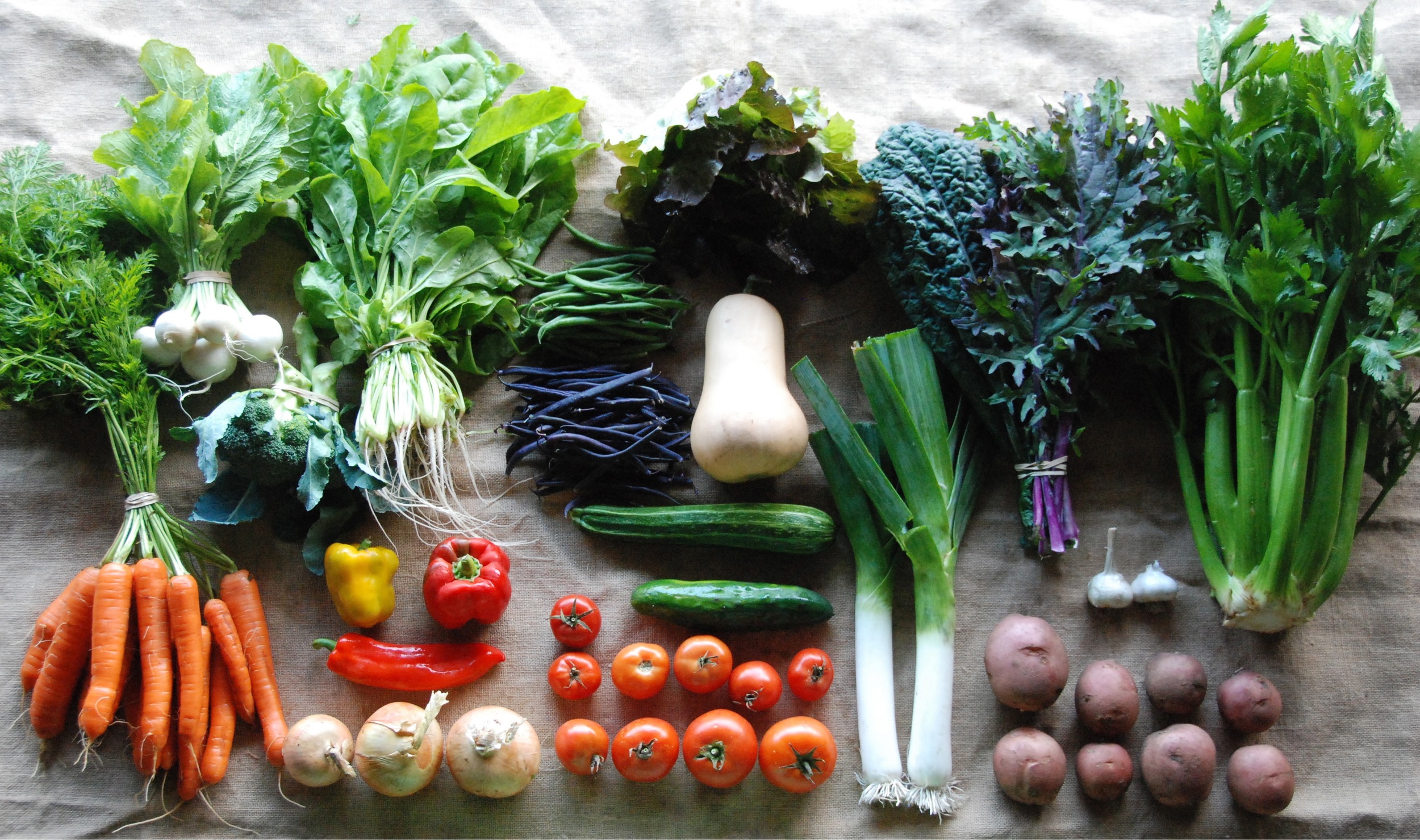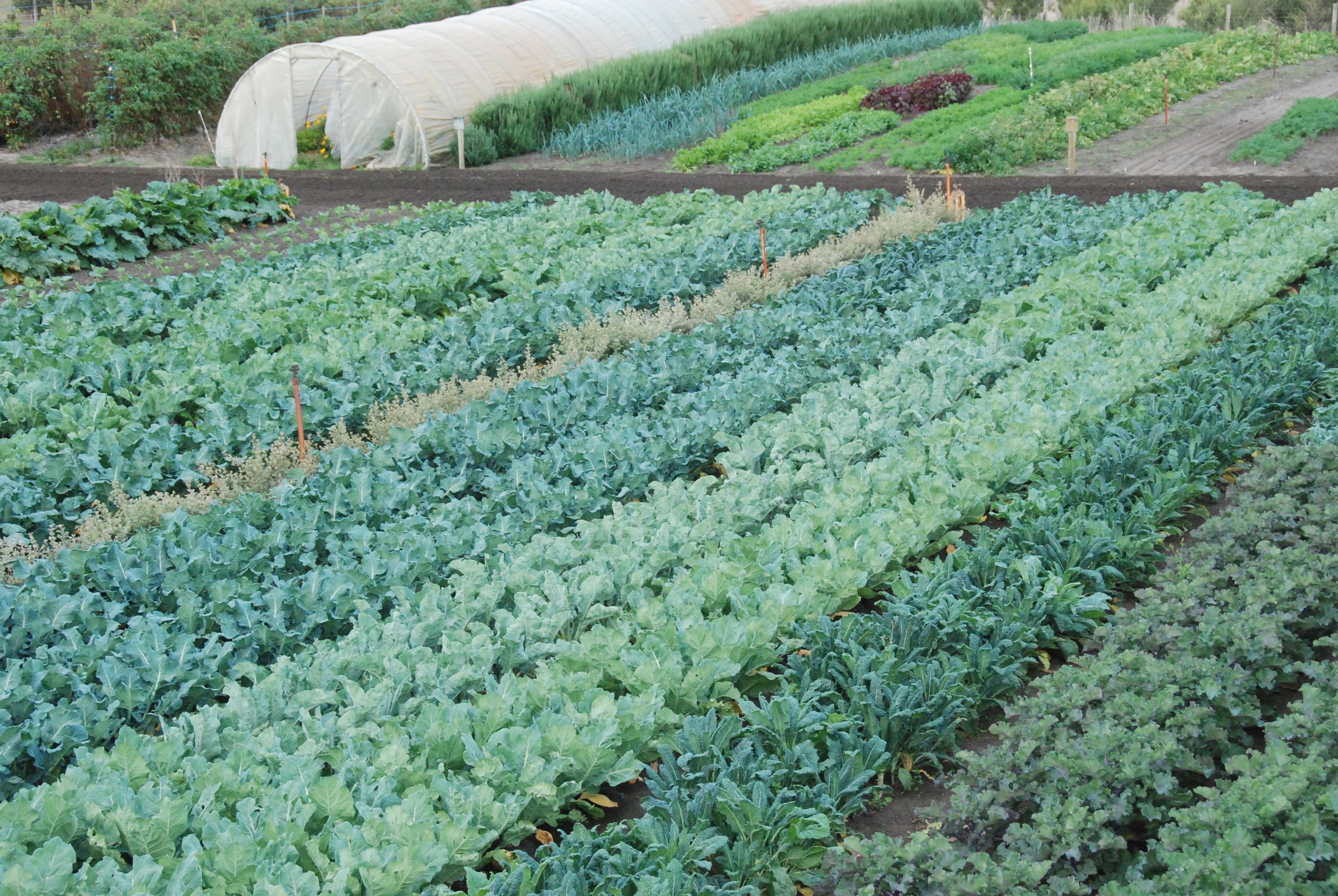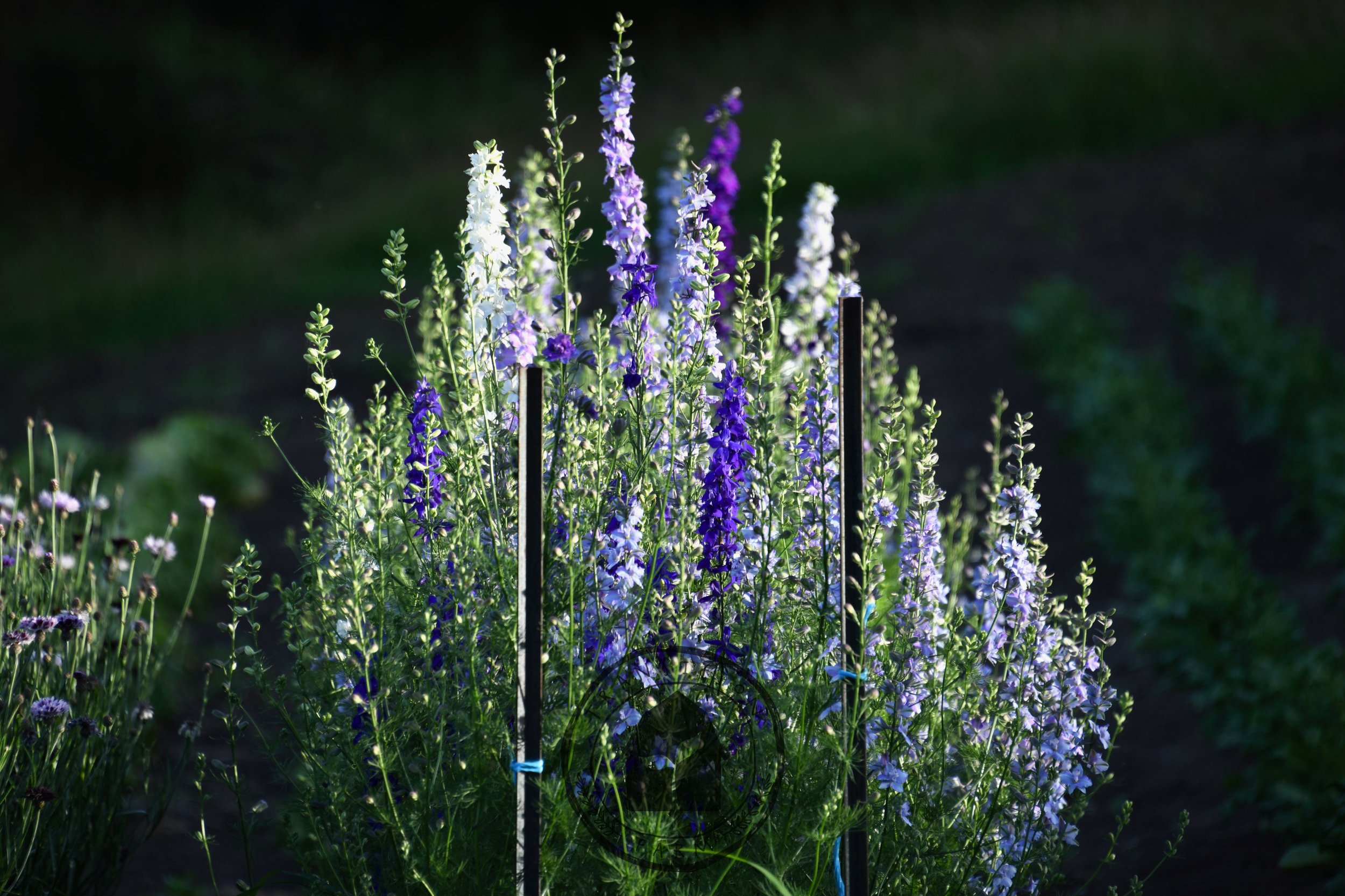Sowing and Transplanting in January
/An Early April harvest from seeds sown in January
The New Year. having past the summer solstice , is filled with the lingering daylight and heat of summer!!
The main tasks of January are maintenance jobs such as keeping tomatoes trained, ensuring weeds do not go to seed and keeping up with the harvest! Powdery mildew may be creeping into many plants including cucumbers, zucchini and zinnias. Early detection and elimination can help fungal diseases from spreading.
One of the greatest keys to continuous harvest is thinking one season ahead! Our quest for autumn brassicas finds us sowing those seeds now! We also continue our successive planting plan, including sowing our third and last planting of the season of zucchini and cucumbers. We overcome the falling off of health and the reduced production of older plants by having young ones ready to carry us through into Autumn. The zucchini and squash are great additions to early autumn minestrone soups and ratatouille when the eggplant, capsicum and tomatoes are still so prolific.
Keep yourself in lettuce by continuing to sow those varieties that thrive in the heat.
Zinnias are wonderful to successive sow too. They will work hard through Autumn to mix in with late season dahlias, celosia, sunflowers, amaranth and tithonia - to name a few!
The crops to start sowing now are Autumn/ Winter brassicas and raddichios! If you would like to be eating broccoli, cauliflower, kale, cabbage and radicchio in April - July, start sowing those seeds now! Many of these crops will grow with summers heat to be maturing and ready for harvest in early-mid Autumn.
We have outlined our January sowing and growing plan below:
Autumn Brassicas
NOW is the time to start sowing your Autumn brassicas! You will be transplanting these in early February to harvest in mid March - July! We successively sow these as well - starting in January with our last sowing in early March. This provides us with Autumn/Winter and early Spring brassicas!!
‘PIRACICABA’ Broccoli offers an amazing harvest of cut and come again small headed, sweet stems and it copes with heat as well as cool climates!
‘KALIBOS’ Cabbage is so very sweet and we absolutely love the colour in our winter garden
‘SHANGHAI GREEN’ Bok Choy is a tight headed, thick white ribbed variety that can be harvested as a mini or full size head.
Greens
Lettuces - Sow in January for early March - April harvest. These are varieties that handle the heat of summer
Icebergs like Crispino and Salinas 88 cope with summer heat and make for a juicy, crunchy salad, sandwich and hamburger!
Colorful crisphead lettuces such as Joker, Jester and Rosencrantz also thrive in summer heat.
Gem/Romaine Lettuces - Eruption, Double Density, Pandero and Sweetheart Gems are great choices for quick to mature lettuces. Great raw and grilled, gems love the heat (remaining sweet and juicy), grow quickly and can fit in to all the empty little spots of the garden adding colour. We sow every two weeks to keep a constant supply for salads and grilling!
And romaines like Jadeite, Jericho and Flashy Troutback will stay sweet and succulent through the heat offering great full sized heads for late summer salads.There are tricks to growing sweet summer lettuces. Read about them here
Orach is a heat loving spinach like leaf that can be deep purple to golden. We love adding it to salads, putting it under fish or BBQ chicken and sautéing it on its own
Rocket - for a constant supply, sow every two weeks
Perpetual Spinach - A silverbeet that can cope with the heat and is delicious harvested young
While we usually sow our pumpkins in November, we have experimented with a late sowing of quicker to mature varieties such as ‘Red Kuri’, ‘Marina di Chioggia’ and ‘Black Futsu’ with good results
We continue to sow and transplant celery each month for a continuous supply. The plants you sow now will provide you with soup celery in Autumn!
Basil. We ensure a constant supply of high quality leaves by successively sowing all basils. The bees love the flowers but as soon as the plant starts to flower, the leaves lose their quality.
Coriander does bolt quickly throughout summer so we successively sow it every two weeks to keep up the supply.
Dill is not only a favorite in potato salad, we love it in our cut flower bouquets. We sow it every six weeks to keep a constant supply
Perilla’s bright, minty perfume with hints of cinnamon and clove are not only delicious with fish or muddled into a mojito, with its long vase life, it also adds lovely colour to cut flower arrangements
Parsley sown now will provide you leaves through winter
Roots
Carrots - to keep a constant supply, we sow carrots ever 3 weeks from now through March!
Beetroot - we continue sowing these every month
Leeks and Celeriac are being transplanted - if you are after smaller mature specimens… in the south
Successive sowings of Zinnias can help overcome powdery mildew.
Edible flowers alyssum, calendula and nasturtium
Successive plantings of fillers such as nigella, pennycress and mignonette
Sunflowers
We continue to successively sow these through until early February for harvest in early April
Corn
We direct sow sweet corn now ensuring that is planted in a block of at least 1.5m * 1.5m to ensure good kernel pollination
We will be sowing our last succession this month. This helps to overcome disease issues.
Take advantage of our SUCCESSIVE PLANTING, AUTUMN SEEDS and SUMMER LETTUCE SEED COLLECTIONS which offer a 20% savings over buying individual packets.
PLEASE NOTE - These recommendations are completely based on our 15 years of growing on this patch in Southern Victoria, Australia. See Key Information To Record For Future Success to understand on what we base this information.















